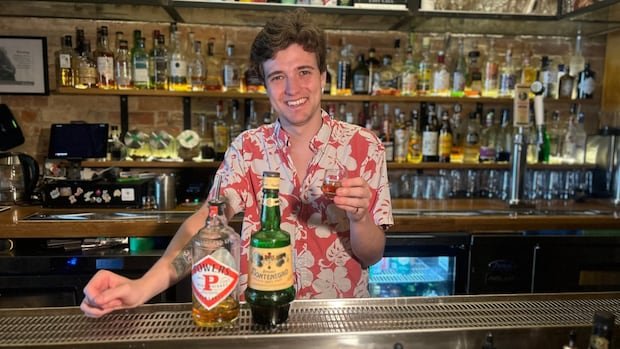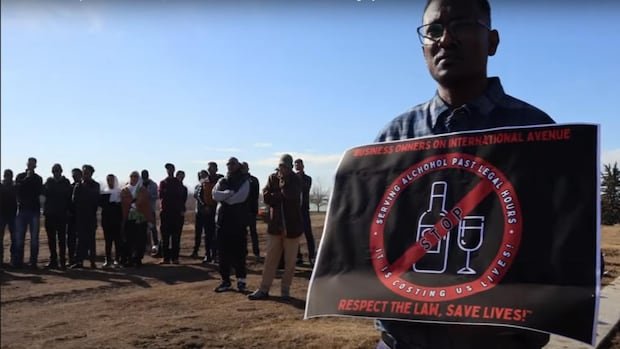Scientists collecting wastewater samples get access to a variety of confidential information.
At the University of Guelph in southern Ontario, researchers are working to protect this data.
Melissa Perreault is part of the research team focused on developing a policy to better protect indigenous people from research exploitation, specifically through wastewater sampling.
“I want to start saying how valuable it is wastewater investigation … but there are other things in wastewater in addition to [COVID-19]”Perreault told CBC News.
During the COVID-19 pandemic, the public health departments used a wastewater sampling to monitor the spread of the virus throughout Canada.
Confidential data found in wastewater, including human DNA and prescription or illicit medications, can also provide researchers with more information about the general health of the community.
“With indigenous communities, this becomes a problem because they live in isolated communities for the most part … there is the risk of exploitation of using that human DNA for other things that researchers originally intended to do,” said Perreault.
She said the consent can be complicated if researchers decide to hold on to DNA samples for a long time.
“Wastewater samples are samples of the community, so there are potentially hundreds [or] Thousands of people who have contributed to that DNA in those samples. So the question is: ‘Who gives his consent for that?’ “Perreault said.
“If these are community leaders, what happens if community leaders change? Can a person say no? These are all the questions that add to the complexity of wastewater samples.”
The work is being financed through a two -year subsidy by Genome Canada. The non -profit group works to “use genomics based technologies to improve the life of Canadians,” according to their website.
The two -year schedule to finish the work is an approximate estimate and could change, said Perreault. Some of the preliminary efforts will focus on understanding what indigenous communities would like to work and obtain consent.
Lack of indigenous DNA A challenge for researchers
Precision medicine refers to the use of genomic data to predict which medicine will work best for each person.
But precision medicine cannot serve indigenous peoples if their reference data is missing, and there is an information gap for indigenous groups worldwide, even in Canada.
“Indigenous DNA is very coveted by researchers,” said Perreault.
“The people of the first nations live mainly in reserves, so they are very close communities, mostly, more isolated than other communities during millennia … the risk of exploitation of indigenous peoples by researchers is greater,” he said.
The lack of representation of indigenous genomes in large databases reflects a general caution in that group caused, in part, by historical cases of genetic research that went wrong.
A study considered by the main geneticists as a game change involved the first Nations Nuu-Chah-Nulty on the island of Vancouver.
Nuu-chah-nulth have a high frequency of rheumatoid arthritis. The research team collected DNA samples of approximately half of the members of the first nations to study the genetic basis of the disorder.
The genetic determinants of rheumatoid arthritis were not found, but that was not the big problem. The researchers sent DNA samples to external facilities for genetic descent studies without the knowledge or consent of the participants.
Krystal Tsosie, geneticist and bioethics of the University of Vanderbilt in Nashville, said that the collection of genetic samples and data from underrepresented populations, including indigenous peoples, is colonialism.
“If we really want to talk about justice and genomic justice, then we really have to talk about data equity and also train data decisions from indigenous communities like ours,” he said.
Another case study: the Havasupai community of Arizona
Perreault said there are several examples in the recent history of indigenous DNA that is used in research without permission.
She said that one of the most infamous case studies is from the Havasupai community in Arizona.
Between 1990 and 1994, researchers at Arizona State University went to that community to take blood samples to be used in a diabetes project, with the aim of determining how genetics plays a role in type 2 diabetes.
It was later discovered that their biological samples were used to challenge the history of origin of the community and prove the link between schizophrenia and inbreeding, terms not agreed by the Havasupai.

The community sued the Arizona State University for the argument that they did not consent to how their blood samples were used and it was a violation of medical confidentiality. The community was established outside the Court for $ 700,000.
“[The Havasupai community] It is probably one of the most famous samples, “said Perreault.
“But this is not something that is only happening historically. The exploitation of indigenous communities is really happening now.”
An ethical guide to work with DNA
The principles of the first Nations of OCAP (property, control, access and possession) provide researchers with an ethical guide to work with the first nations that choose to share their data, including DNA.
The OCAP guideline says that the first nations should only have control over how they are stored, interpret, use or share their data. Perreault and his team hope to use OCAP as a basis for building their policy, which is specific to wastewater management.
Jonathan Dewar is CEO of the Information Government Center of the first nations, which developed the OCAP principles. He said it is true that indigenous peoples are at a higher risk of research exploitation.
“History is a legacy of abuse, a legacy of extractive research practices, taking from indigenous communities, not compensating them, not citing them, erase them,” he said.
“Let’s quickly advance to 2025 and that has not changed … we have a federal government that uses the language of the nation’s relationship to the nation. The imbalance between Canada and indigenous peoples, and their governments, remains the prevailing reality.”
After the policy, Perreault and its team will communicate with Dewar and the information center of the first nations, as well as the Board of Research Ethics of the University of Guelph, to see if they can officially adopt it.
The morning edition – KW7:27U of G researchers seek to develop a policy to protect the indigenous DNA found in wastewater
Wastewater can tell you a lot about a community. So much so, that the data collected could be exploited. Now, researchers at the University of Guelph want to develop a new policy to protect indigenous communities against data exploitation when it comes to wastewater research. Melissa Perreault, principal researcher, explains.









